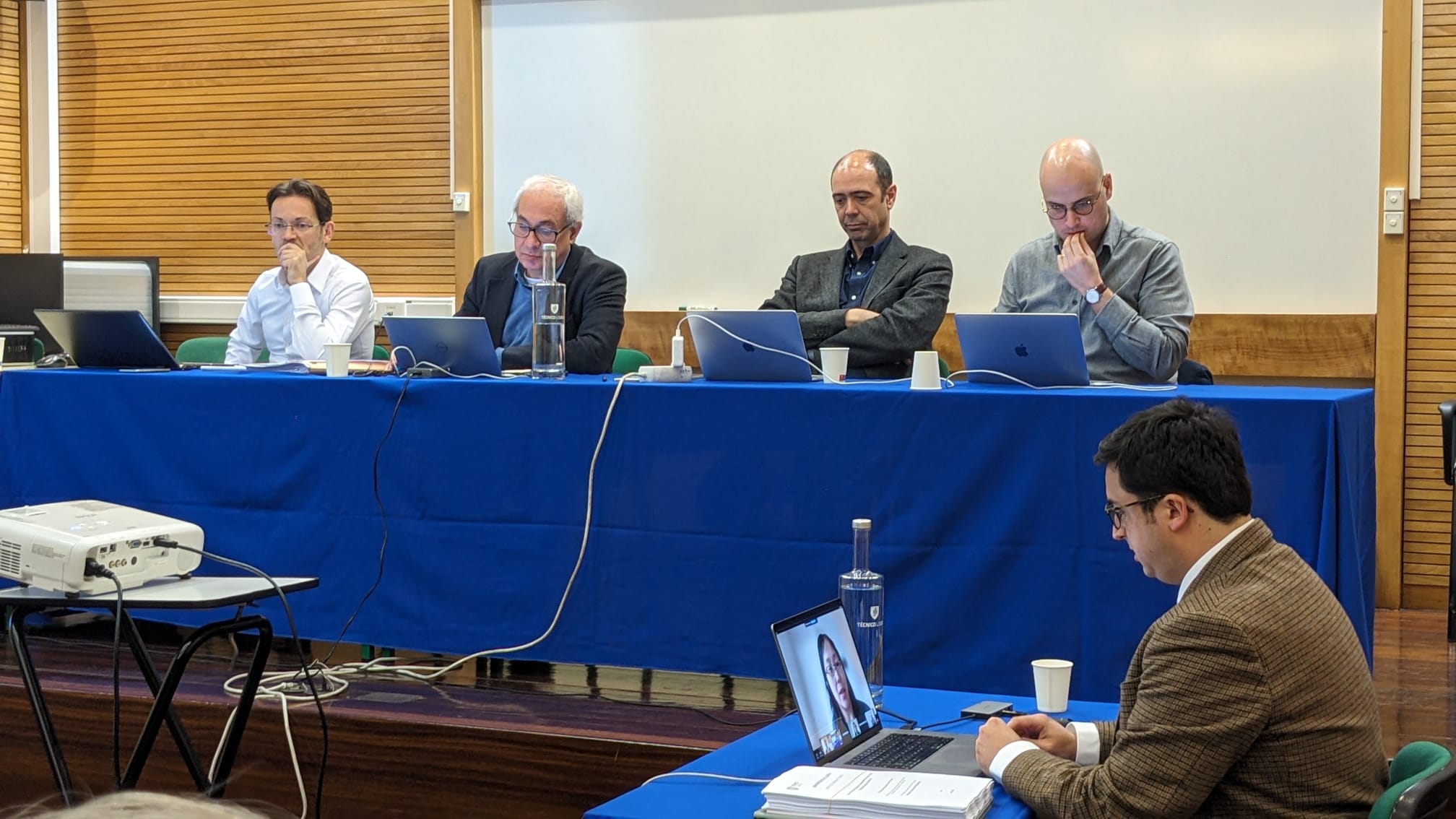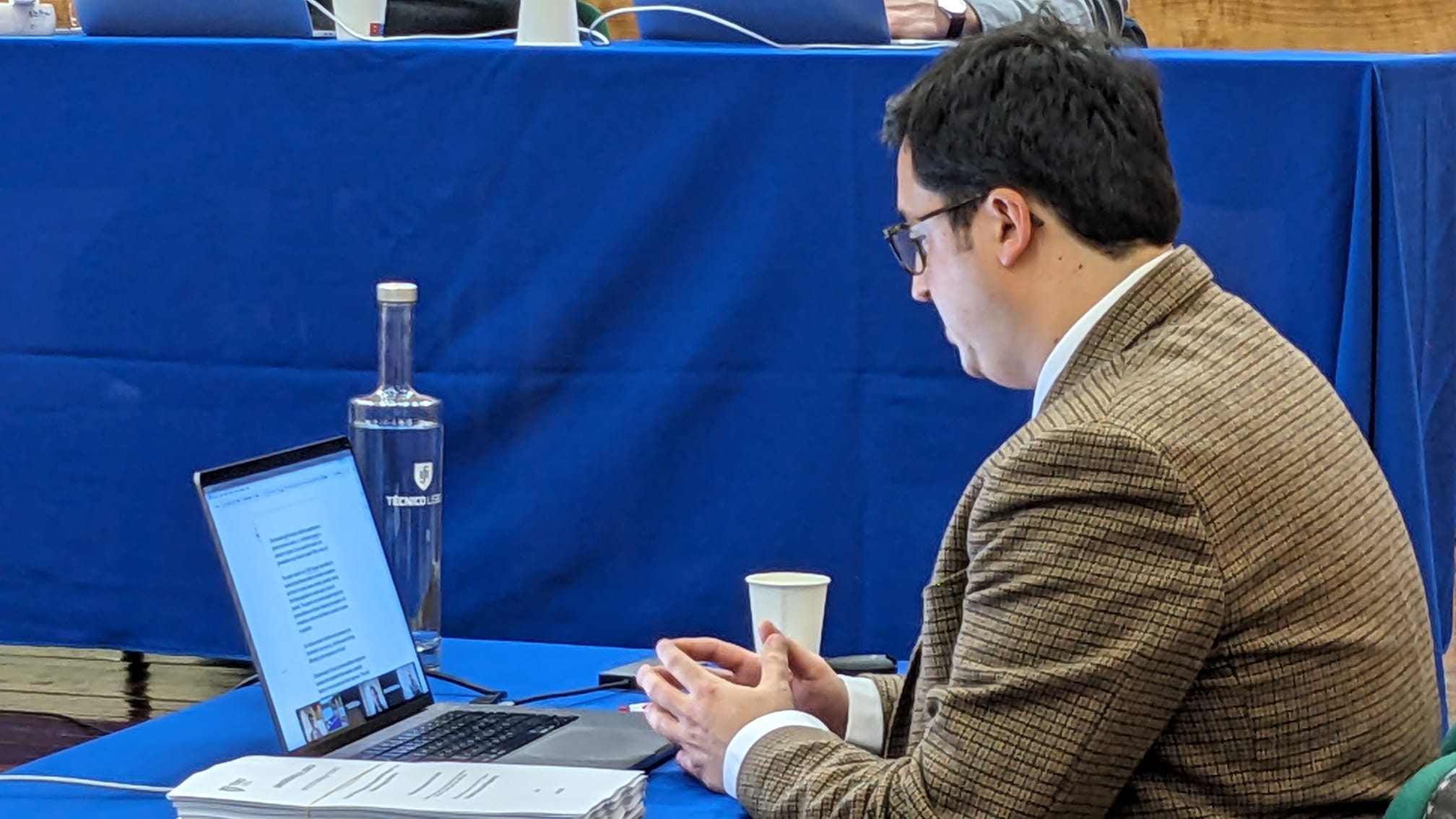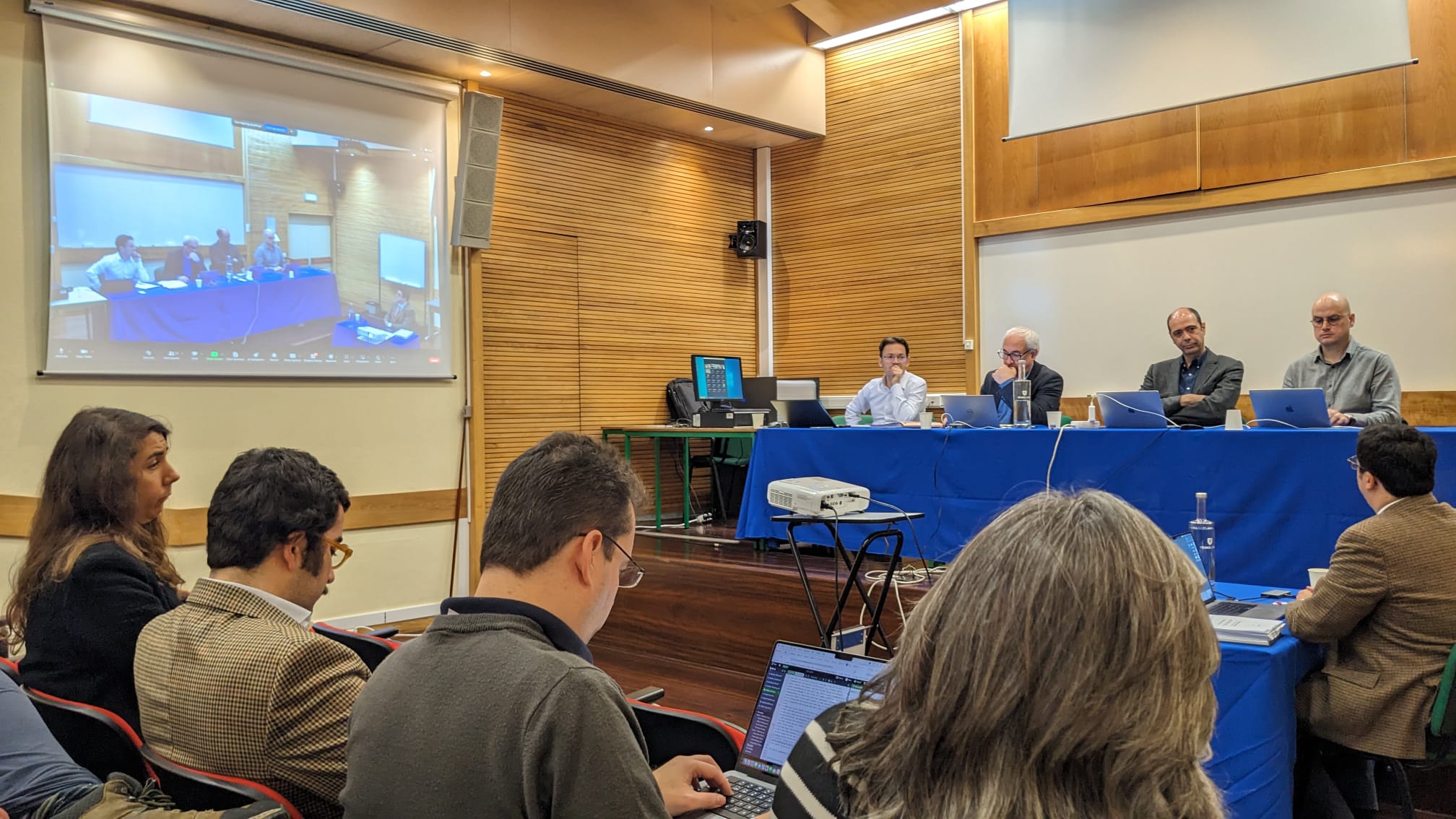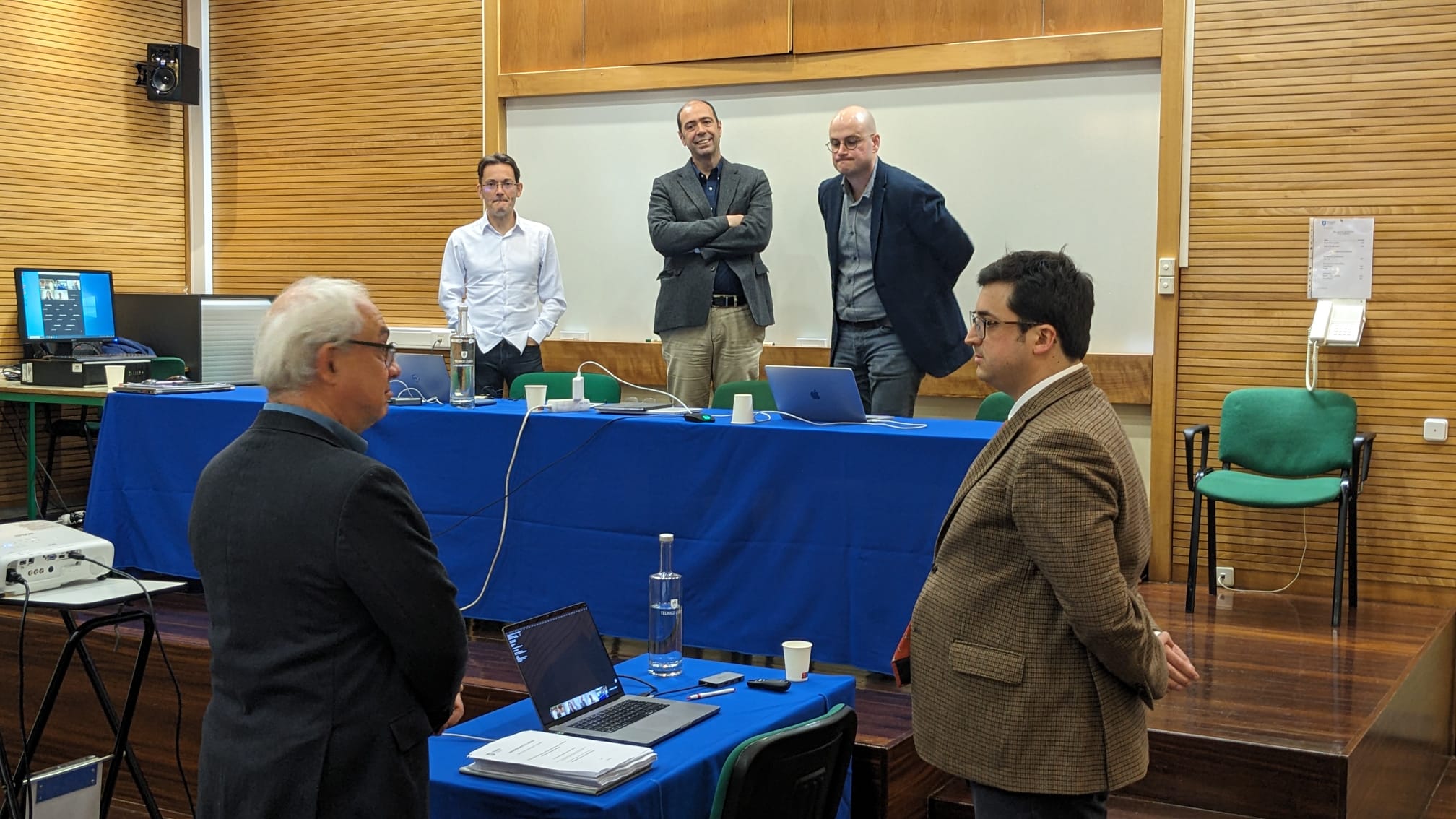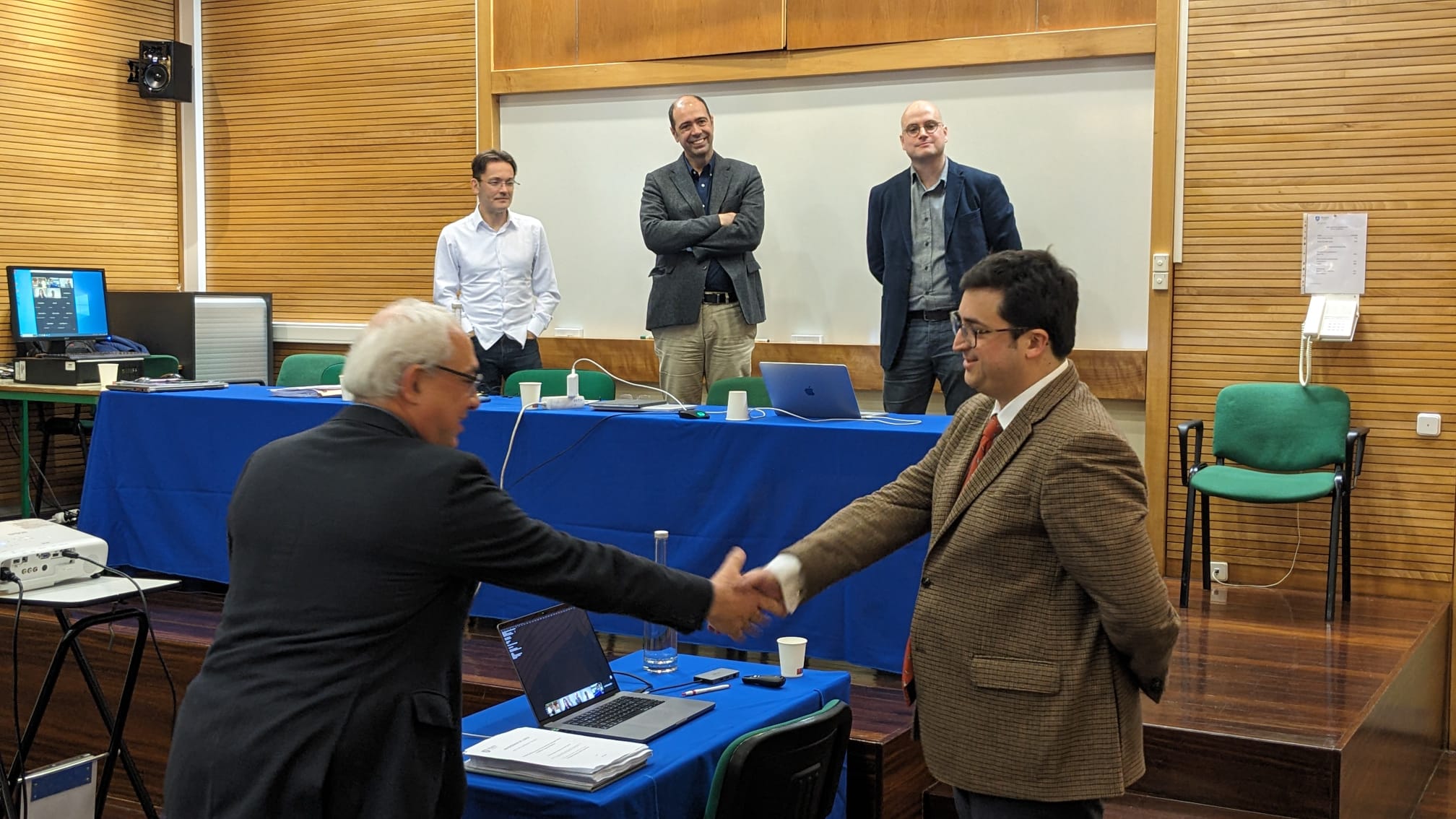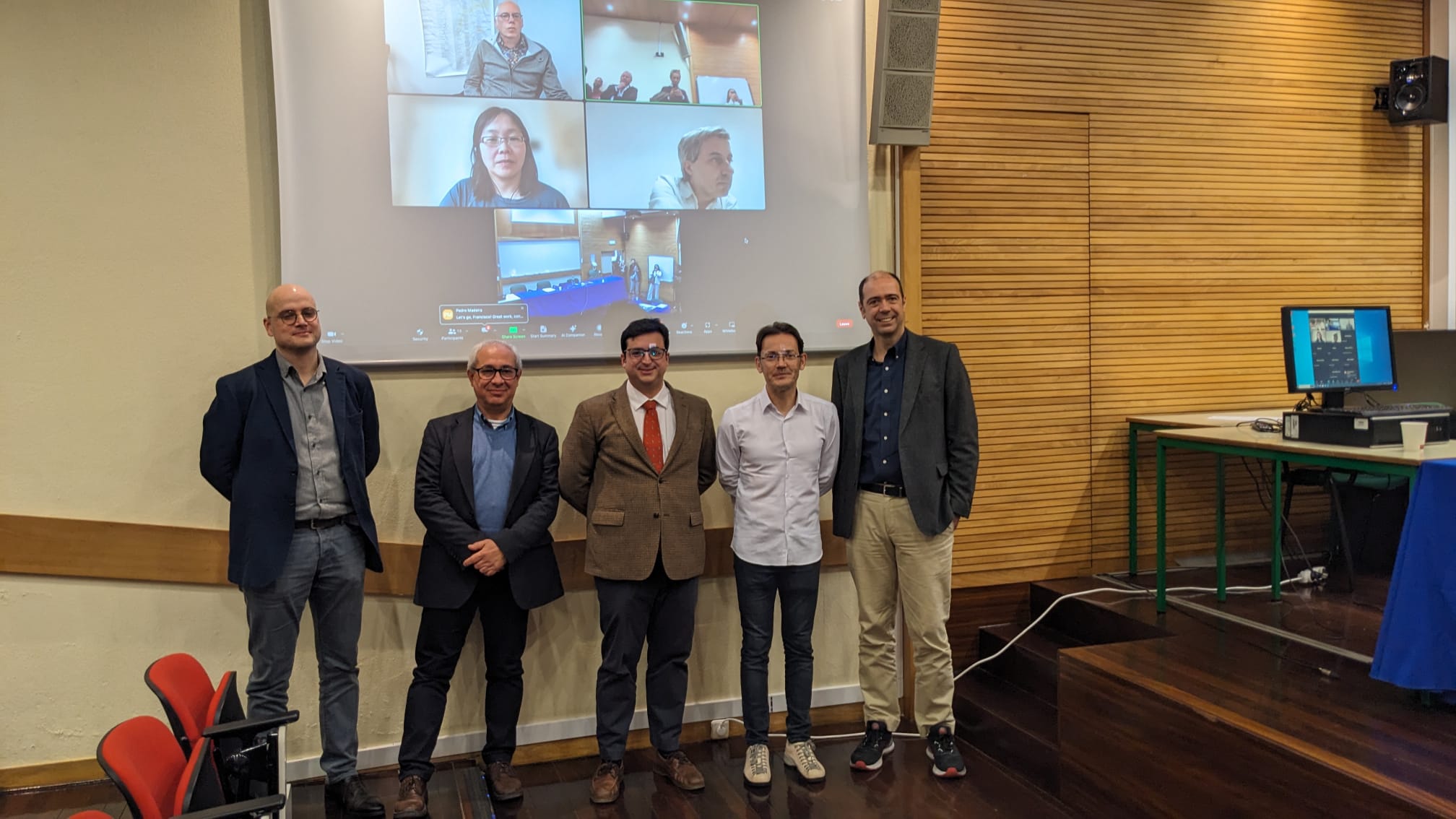Prova de Doutoramento do aluno Francisco Maria Galamba Ferrari Calisto
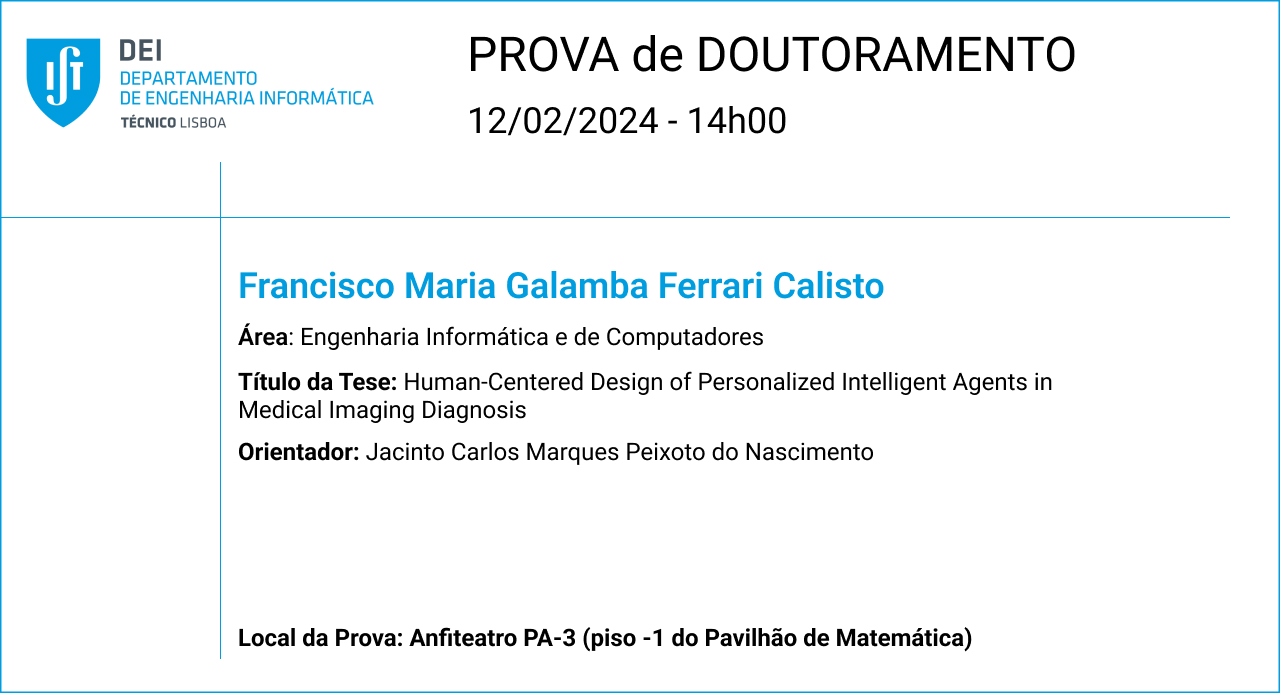
Área: Engenharia Informática e de Computadores
Título da Tese: Human-Centered Design of Personalized Intelligent Agents in Medical Imaging Diagnosis
Local da Prova: Anfiteatro PA-3 (Piso -1 do Pavilhão de Matemática)
Data: 12/02/2024
Hora: 14h00
Abstract: As intelligent agents rapidly advance, they hold great promise for improving decision-making in highstakes domains. This thesis focuses on the less-explored aspect of designing and adapting these agents for specific audiences, like radiology clinicians. It delves into the prerequisites for successfully integrating anthropomorphic intelligent agents as second-reader diagnostic support, exploring their role in clinical workflows, user acceptance dynamics, and the impact of personalized recommendations. The initial phase of this dissertation explores the adoption of intelligent agents by proposing a model rooted in the unified theory of acceptance and use of technology. This model examines the factors influencing agents' adoption throughout the medical imaging workflow. It emphasizes the role of security, risk, and trust as critical factors influencing the intention to use these systems. These findings provide invaluable insights into improving the successful integration of intelligent agents into healthcare settings. We subsequently explore applying deep learning methods to medical imaging diagnostics, utilizing a human-centric design approach, such as focus groups, observations, and interviews, focusing on breast cancer. The development and evaluation of the BreastScreening-AI framework, which integrates multimodal imaging and artificial intelligence techniques for image analysis, demonstrate considerable gains in diagnostic efficiency and a notable reduction in cognitive workload with improvements in clinicians' satisfaction. The thesis underscores the transformative power of intelligent agents in augmenting clinicians' workflows and decision-making. The dissertation concludes by exploring customized communication between intelligent agents and clinicians. For that, we investigated the influence of two contrasting communication tones on clinicians' receptivity and performance: (1) suggestive (non-assertive); and (2) imposing (assertive). Findings reveal that assertiveness-based agents can reduce medical errors and enhance satisfaction, introducing a novel perspective on the design of adaptive communication in assisted healthcare. Ultimately, this dissertation significantly contributes to human-computer interaction by emphasizing clinicians' needs and the essentials of incorporating intelligent agents into healthcare. The execution of design interventions emphasizes the importance of a human-centered approach, focusing on clinicians' needs in developing novel solutions that are both accessible and easy for users to operate in critical domains. The thesis investigates clinicians' attitudes towards intelligent agents, providing insights to direct future healthcare design and research, marking it as a crucial field reference.

